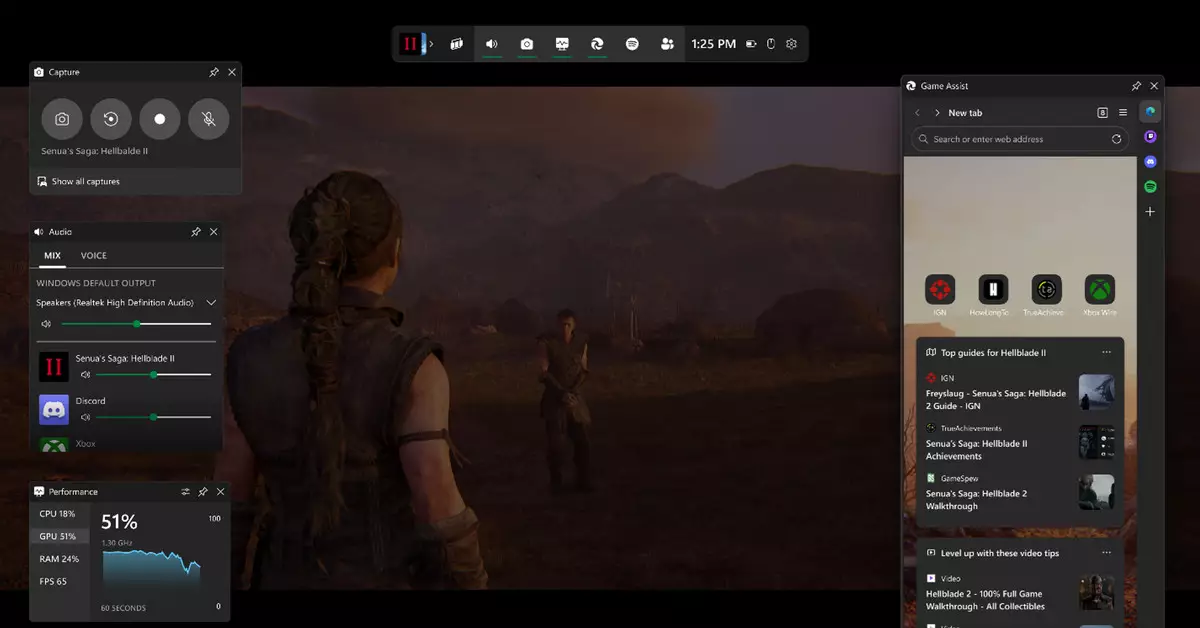In an increasingly digital world, the intersection of gaming and technology continues to evolve, captivating the imaginations of both developers and players alike. Microsoft has taken a bold step in this direction with the beta launch of its new feature, Microsoft Edge Game Assist. This innovative in-game browser overlay, integrated within the Microsoft Game Bar, promises to provide gamers with real-time access to game-related guides and tips while they immerse themselves in their favorite titles. However, as with any new technology, it is crucial to assess its capabilities and limitations in order to understand its impact in the gaming landscape.
At the heart of Game Assist lies a “game-aware” overlay that automatically identifies the game being played and curates relevant content from the Edge browser. The functionality is designed to streamlines the player’s experience, providing access to guides, tutorials, and tips without the need to switch contexts or interrupt gameplay. Users leverage their existing Edge profile, benefitting from autofill features, saved cookies, and bookmarks. This seamless integration minimizes the frustrations typically associated with online searches—an exciting prospect for dedicated gamers seeking efficient methods to conquer challenges.
Currently, Game Assist is in beta and only supports a select few games, including popular titles like Baldur’s Gate 3 and Diablo IV. Although players are expected to search for most content manually for now, the promise of additional gaming titles being added creates a sense of anticipation within the community. Microsoft aims to enhance user engagement by continually updating and expanding the game library supported by Game Assist during the preview phase.
The launch of Game Assist is not just about rolling out a new tool; it embodies a commitment toward fostering community engagement. Microsoft has established multiple channels for feedback collection, which underscores its dedication to refining the user experience. Players are encouraged to communicate their thoughts through the Game Assist interface or via social media platforms, such as Reddit and X (formally Twitter). Moreover, the introduction of a community feedback portal allows users to vote on desired features, ensuring that future iterations of Game Assist reflect collective user preferences and expectations.
While the current offering is tailored primarily for keyboard and mouse users, Microsoft has expressed intentions to incorporate support for handheld devices and gamepads in subsequent updates, addressing a broader segment of the gaming audience. Furthermore, a Compact Mode is also in the pipeline, potentially providing options for players interested in a streamlined version of the overlay functionality.
The onboarding process for Game Assist requires users to navigate through a few essential steps to ensure compatibility with their systems. Firstly, those interested in utilizing this feature must confirm that Windows 11 and the Game Bar are up to date. Subsequently, users need to install the Beta or Preview version of Microsoft Edge. With clear, step-by-step instructions provided by Microsoft, the transition into using Game Assist appears relatively smooth, paving the way for an enjoyable gaming experience without extensive technical barriers.
This initiative reflects a growing trend of integrating software applications with gaming, enhancing not only the entertainment aspect but also the accessibility of information. As the gaming community increasingly demands features that amalgamate gameplay with real-time assistance, the presence of such an overlay is a significant leap forward in minimizing the distractions that often accompany gaming.
The introduction of Game Assist signifies Microsoft’s ongoing commitment to improving the gaming experience. By enabling real-time access to game-specific content and establishing feedback channels, Microsoft is well-positioned to continue evolving this innovative tool. As more titles are added and further functionalities are integrated, Game Assist holds the potential to significantly alter the way gamers interact with their games and acquire the information needed to master them. As we look towards the future, it is clear that technology’s role in gaming is not only expanding but also enriching the experience for players worldwide.

